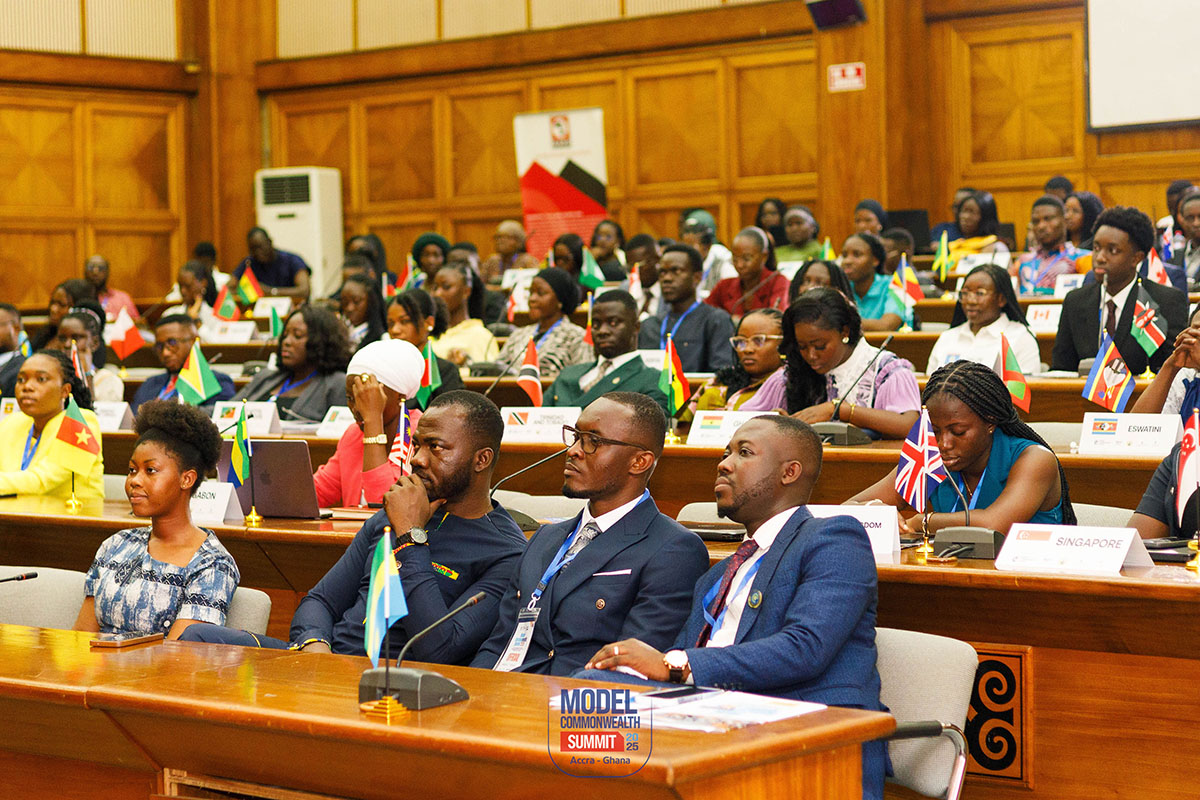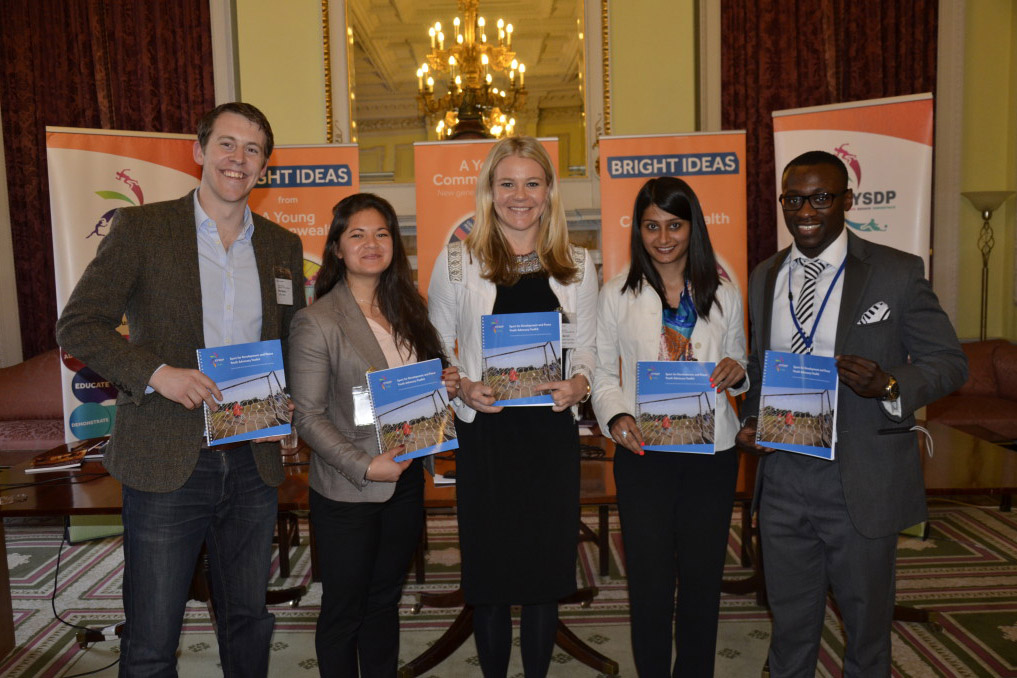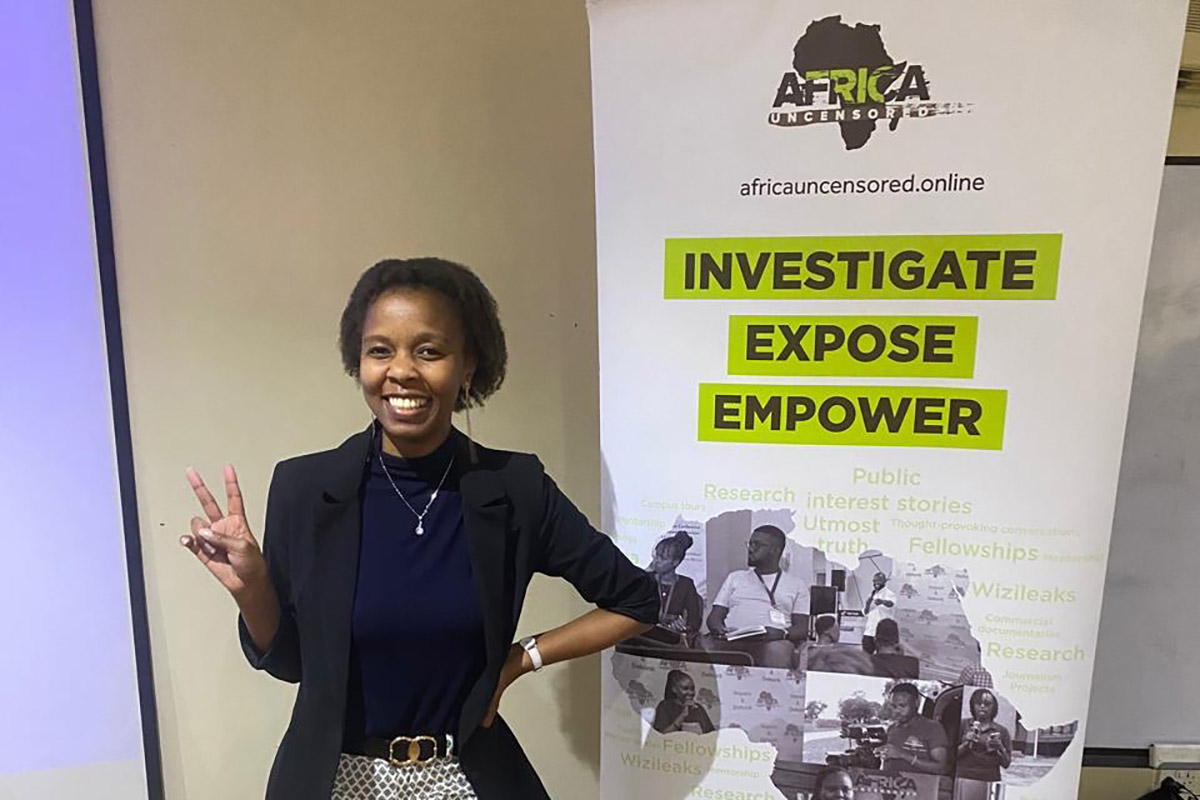#IamAble: Antigua and Barbuda conference
December 7The #IamABLE campaign for youth with disabilities stems from the request of young people from across the Commonwealth, including Antigua and Barbuda’s Commonwealth National Youth Delegates Jonelle Walsh and Kurt Williams.
The campaign seeks to contribute towards the development of a more inclusive society by addressing the marginalisation and discrimination of people with disabilities in the Commonwealth. Only one year into the campaign, we were in Antigua and Barbuda to discuss current status, challenges and solutions to problems being faced by youth with disabilities in the country, and around the Commonwealth. This conference is a culmination of the partnership between the High Commission of Antigua and Barbuda to the United Kingdom, the Government of Antigua and Barbuda and the Commonwealth Youth Council.
Moderating the opening ceremony, Her Excellency Ms. Karen Mae- Hill, High Commissioner of Antigua and Barbuda to the United Kingdom said, “Working with the Government and the Commonwealth Youth Council over the past months to formulate this conference has been very inspirational for me, and has changed my perception of disability.”
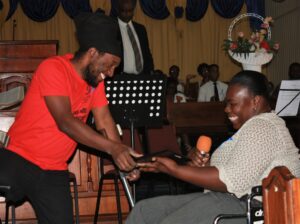 Stressing that people with disabilities should be treated with respect and be given equal opportunities, she encouraged the audience to look at the ability and not the disability. She also acknowledged the presence of H.E. Sir Rodney Williams, Governor General of Antigua and Barbuda and Lady Williams, who serve as patrons of several disability groups and organisations on the Island.
Stressing that people with disabilities should be treated with respect and be given equal opportunities, she encouraged the audience to look at the ability and not the disability. She also acknowledged the presence of H.E. Sir Rodney Williams, Governor General of Antigua and Barbuda and Lady Williams, who serve as patrons of several disability groups and organisations on the Island.
This idea of empowerment of people with disabilities is not new to Antigua and Barbuda. Antigua and Barbuda is one of the first countries to have a blind permanent representative to the United Nations, and it was only fitting that Ambassador Dr. Aubrey Webson shared his experiences with the gathering. He commended the current efforts that included paratransit services, accessible airport facility and the legislation to realise the provisions of the UN Convention on the Rights of Persons with Disabilities, which was ratified in 2016.
Ambassador Dr. Aubrey Webson expressed his optimism, and encouraged the participants to be hopeful, tolerant and more inclusive, besides working together to change what it means to have a disability. British High Commissioner to Antigua and Barbuda, H.E. Janel Douglas emphasised the support of the UK to the IamABLE campaign and announced that disability would be a topic of focus at the Heads of Government Meeting in London in April 2018.
Ron Tatar, Director of the Calvin Ayre Foundation, the platinum sponsors of the conference, expressed the organisation’s pleasure to be associated with the campaign. He expressed his eagerness to learn about the outcome document and action plan that seek to provide tangible and concrete implementation measures as a result of this conference.
Angelique Pouponneau of Seychelles, the vice-chairperson for inclusion and engagement of the Commonwealth Youth Council, traced the origins of the campaign and shared her experience organising the conference. Highlighting several success stories of people with disabilities, she reinforced the rationale for the campaign, and implored young people to bring solutions to the table, to collaborate, and to be willing to join organisations that can make a difference.
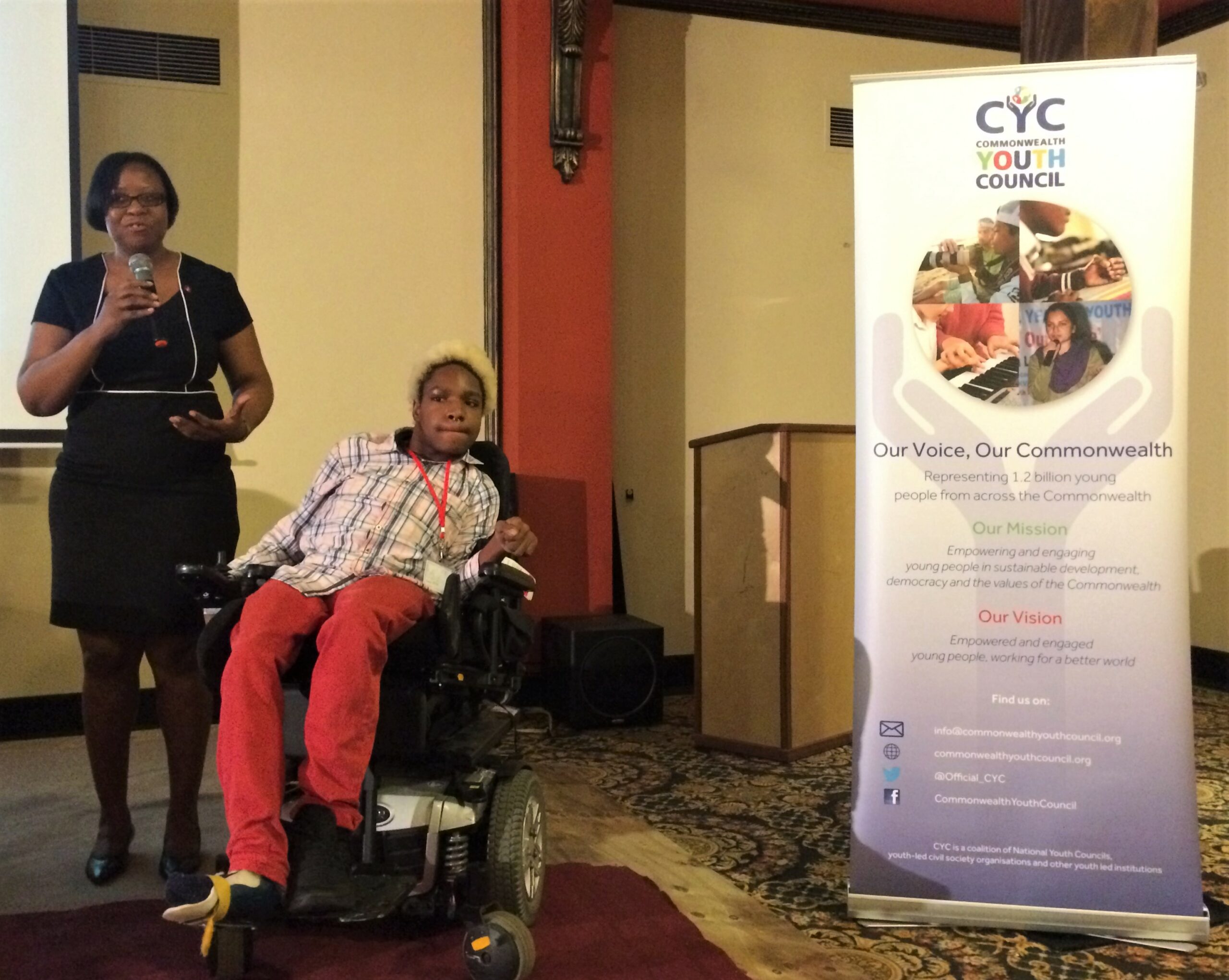 This address was followed by an inspirational talk by Aaron Philip, a 16-year-old high achiever, model, writer and disability rights advocate. He encouraged people with disabilities to accept who they are and be proud about it.
This address was followed by an inspirational talk by Aaron Philip, a 16-year-old high achiever, model, writer and disability rights advocate. He encouraged people with disabilities to accept who they are and be proud about it.
“I am happy to be a model with a disability,” Aaron Phillip said. Sharing stories of the lack of awareness and insensitivity that continues to prevail in our society, he told anecdotes of discrimination and insensitivity, and called upon the audience to be more considerate and accepting.
Hon. Molwyn Joseph, Minister of Health, Environment, Botanical Gardens and Heritage Sites, in his keynote speech urged the audience to accept their personal responsibility towards changing the social fabric of Antigua and Barbuda. Stressing on the need to disregard the “dis” in disability, he emphasised collaboration and suggested the creation of a group of organisations to keep the focus on the mission to continue the objectives of the I am Able campaign in Antigua and Barbuda.
As the ceremony drew to a close, a renewed sense of purpose filled a room of 200 participants as they pondered over what they could do as individuals, as employers and as people with power or influence to make a difference in the lives of people with disabilities.
submitted Monday 4th December 2017, by Angelique Pouponneau, Commonwealth Youth Council
Photo credits: courtesy of Joy and Sujae

